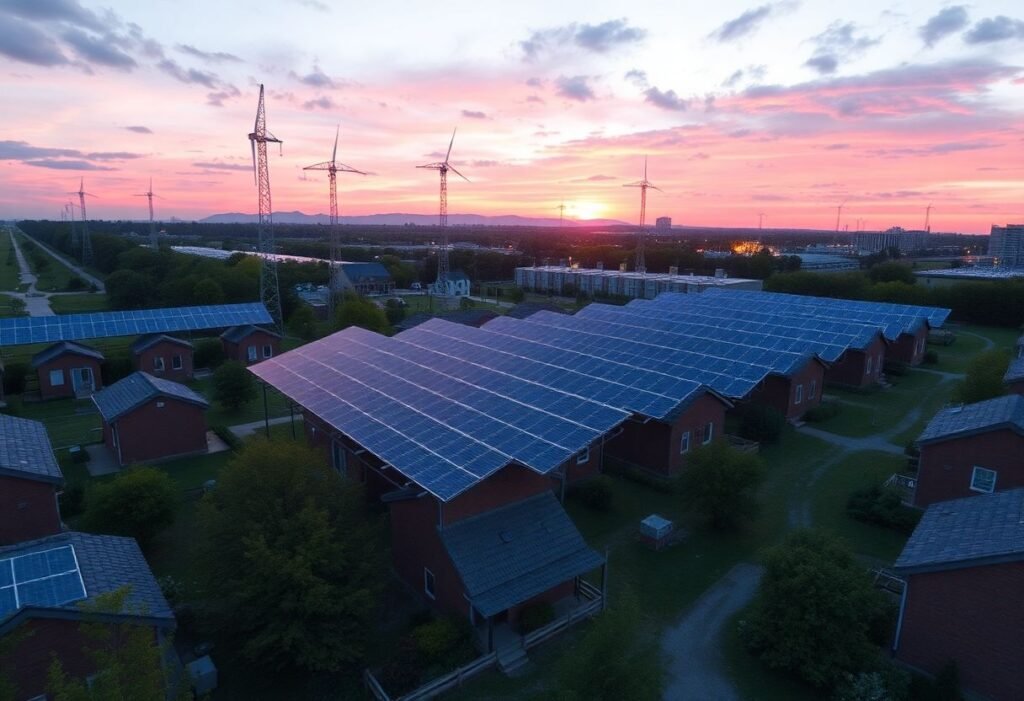Energy efficiency is critical to sustainability and innovation, especially as the world increasingly turns to renewable energy sources. By improving energy efficiency through innovative technologies, we can maximize the benefits of renewables and create a sustainable future that reduces environmental impact.
Innovative Technologies Enhancing Energy Efficiency
Across the globe, innovative technologies are driving the improvement of energy efficiency in various sectors. For example, advancements in smart grid solutions allow for better management of energy resources, enabling utilities to optimize power distribution. With sensors and automation, these systems can immediately respond to fluctuations in demand, preventing waste and improving renewable energy utilization. Furthermore, the integration of energy storage systems plays a crucial role in storing surplus energy generated from renewable sources, ensuring that it is available when needed, thus enhancing overall efficiency.
Solar Energy Innovations
Solar energy has witnessed immense innovations, significantly increasing its efficiency. Technologies such as bifacial solar panels capture sunlight from both sides, allowing for greater energy absorption. Additionally, developments in concentrated solar power (CSP) systems provide intense heat that can be converted to power, thereby enhancing energy output. Furthermore, with optimized inverters and advancements in materials, the cost-effectiveness of solar panels continues to improve, making it an integral part of the transition to renewable sources.
Wind Energy and Technological Advancements
Wind energy continues to evolve, thanks to ongoing technological advancements. The design of next-generation wind turbines incorporates larger blades and enhanced aerodynamics that allow for greater energy capture. Moreover, predictive maintenance powered by machine learning can anticipate failures and reduce downtime, further increasing efficiency. These advancements ensure that wind energy remains a competitive renewable option as energy demands rise.
Building Automation Systems and Smart Cities
The rise of smart cities is transforming how we consume energy. Advanced building automation systems support the efficient management of energy within commercial and residential spaces. These systems use sensors and data analytics to regulate lighting, heating, and cooling, dramatically reducing energy consumption. As buildings transition to smarter designs, the potential for energy savings and sustainability increases, showcasing the pivotal role of innovation in urban development.
Energy Efficiency in Transportation
Transportation is a major factor in energy use, and innovative solutions are emerging to enhance its efficiency. Electric vehicles (EVs) are leading the way, significantly reducing reliance on fossil fuels. Moreover, advancements in public transportation systems utilizing renewable energy sources aim to lessen the carbon footprint. With innovations such as battery technology and hydrogen fuel cells, the transportation sector is poised for a sustainable transition, further bolstering energy efficiency.
The Future of Energy Efficiency and Renewable Innovation
As the need for sustainable practices grows, the synergy between energy efficiency and renewable innovations will be crucial. Continuous research and development will shape new technologies that further enhance efficiency across all sectors. Collaboration between governments, industries, and communities will foster innovation, paving the way for a future where energy is not only renewable but also utilized to its fullest potential.
Disclaimer: The information provided in this article is for informational purposes only and does not constitute professional advice.





















